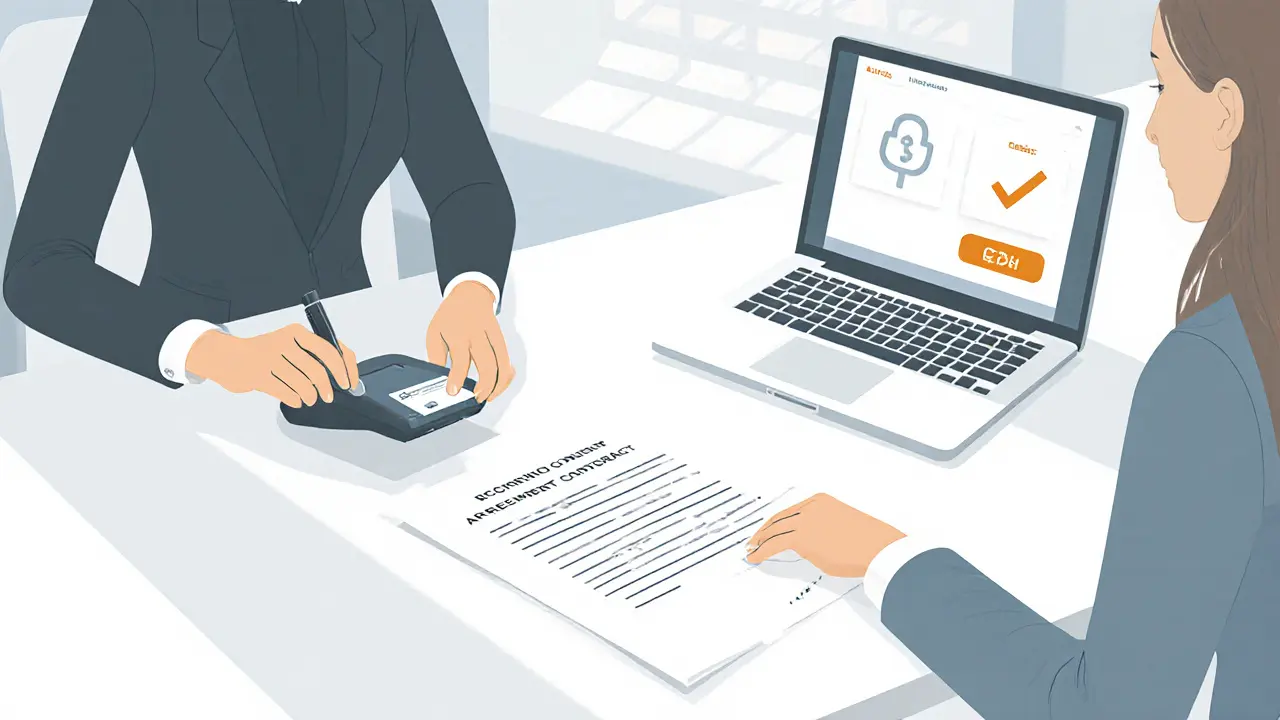London Escort Industry Myths Exposed: Truths, Laws & Safety Tips

Oct, 24 2025
When you hear the phrase “escort in London,” a flood of headlines, rumors, and horror stories usually pops up. Some say it’s a hidden underworld; others claim it’s completely legal and safe. The truth sits somewhere in the middle, and separating fact from fiction can feel like chasing a moving target. This guide cuts through the noise, explains how the industry really works, and shows you where the myths end and reality begins.
Quick Summary
- The London escort sector operates under clear UK laws that differentiate between illegal prostitution and legal escort services.
- Most myths stem from outdated media portrayals or misunderstandings about licensing and safety.
- Legitimate agencies use contracts, ID checks, and security protocols to protect both workers and clients.
- Scams exist, but they’re easy to avoid with a few simple checks.
- Support groups like the Sex Workers Union (SWU) provide advocacy and resources for safe working conditions.
What the London escort industry Actually Is
At its core, the Escort industry in London is a segment of adult entertainment where individuals or agencies offer companionship services, often for a set time period and fee, without engaging in illegal prostitution. The key legal distinction in the UK is that payment for sexual activity is illegal, while paying for companionship, conversation, or non‑sexual experiences is allowed. This nuance is why you’ll see agencies advertising “social outings” or “dinner dates” rather than explicit sexual services.
Common Myths and the Real Facts
| Myth | Fact |
|---|---|
| All escorts are involved in illegal prostitution. | Legitimate escorts operate within the law, offering non‑sexual companionship. Illegal prostitution is a separate offense. |
| Escorts never use contracts or ID checks. | Professional agencies require signed agreements and verify IDs to protect both parties. |
| London’s escort services are unregulated. | While there is no specific “escort licence,” agencies must comply with general business, health, and safety regulations. |
| Clients are always at risk of violence. | Most agencies implement client screening and provide safety guidelines; incidents are rare in reputable services. |
| All escorts are forced into the job. | Many choose the work for financial independence; support groups like the Sex Workers Union (SWU) advocate for workers’ rights and autonomy. |
How UK Law Shapes the Industry
The legal framework is the backbone of everything you’ll see in the city’s escort scene. Below are the main statutes you need to know.
- Sex work legislation in the UK defines prostitution as the exchange of money for sexual activity, which is illegal when the act itself is paid for.
- The Police and Crime Commissioner in London oversees policies that target human trafficking, not consensual adult escort services.
- Existing brothel licensing rules apply only when a premise is used for the exchange of sexual services, which most legitimate escort agencies avoid.
Understanding these laws means you can spot a legitimate service versus one that’s skirting the line.

Key Players: Agencies, Workers, and Advocacy Groups
Several entities shape the daily reality of escorts in London.
- Online escort agencies operate websites where clients can browse profiles, check availability, and book sessions. They typically charge a commission of 15‑30% and handle payment processing.
- Adult entertainment venues (e.g., gentlemen’s clubs) sometimes partner with agencies for special events, but they are not the primary hiring ground for escorts.
- The Sex Workers Union provides legal advice, mental‑health resources, and collective bargaining power for independent escorts.
- Clients often rely on client safety guidelines published by agencies, which cover meeting locations, emergency contacts, and consent protocols.
Safety First: How to Spot a Reputable Service
Whether you’re an escort protecting yourself or a client seeking a safe experience, these checkpoints are universal.
- Verified ID and contracts: Legit agencies require a signed agreement outlining services, fees, and cancellation policies.
- Secure payment channels: Look for encrypted payment portals or reputable third‑party processors. Cash‑only deals are a red flag.
- Transparent communication: A reputable agency will answer questions about health screenings, boundaries, and privacy.
- Professional website design: While not foolproof, a well‑maintained site with clear contact info usually signals a serious operation.
- Agency reputation: Search for reviews, forum discussions, or referrals from trusted communities like the SWU.
Following these steps cuts the risk of scams, exploitation, or legal trouble.
Common Scams and How to Avoid Them
Scams aren’t limited to the illegal fringe; they can appear even on seemingly polished sites.
- Fake profile listings: Scammers post attractive photos taken from other sites. Verify the profile by requesting a short video call before paying.
- Up‑front payment traps: Some agencies demand large deposits without a refundable policy. Insist on a clear receipt and a written refund clause.
- “Broker” middlemen: Unlicensed individuals may claim to represent an agency. Ask for the official agency’s email domain and cross‑check with their website.
Being vigilant saves time, money, and stress.

Impact on London’s Nightlife and Economy
The escort sector, though often hidden, contributes to the city’s nightlife economy. Workers spend earnings on local services-restaurants, taxis, entertainment-creating a ripple effect. A 2023 study by the London Institute of Social Research estimated that legal adult‑entertainment activities, including escort services, generate roughly £150 million annually in ancillary spending. This figure highlights why regulators aim for a balance between protection and economic reality.
Future Trends: Technology, Regulation, and Visibility
What will the next five years look like for London’s escort market?
- AI‑driven vetting: Platforms are testing AI tools to flag fraudulent profiles before they go live.
- Policy shifts: Ongoing debates in Parliament about de‑criminalizing consensual sex work could reshape licensing requirements.
- Increased transparency: More agencies are adopting “clear‑price” models and third‑party audits to build trust.
Staying informed about these trends helps both workers and clients navigate changes confidently.
Bottom Line: What Should You Walk Away With?
Dispelling myths starts with understanding the legal line, recognizing reputable agencies, and using simple safety checks. Whether you’re an escort looking for a safer work environment or a client seeking a genuine companionship experience, the facts matter more than the headlines. Keep the checklist handy, trust verified sources, and remember that the bulk of London’s escort industry operates responsibly under the law.
Is paying for an escort illegal in the UK?
No. Paying for companionship that does not involve sexual activity is legal. The illegal part is paying directly for sexual acts, which is defined as prostitution under UK law.
How can I verify an escort agency’s legitimacy?
Look for a signed contract, clear privacy policy, ID verification, and secure payment methods. Checking reviews and confirming the agency’s registration with the Sex Workers Union adds extra confidence.
What safety measures should escorts take before meeting a client?
Share your location with a trusted contact, set a check‑in time, meet in a public place first, and keep personal items (phone, ID) readily accessible. Use agency‑provided emergency numbers if anything feels off.
Are there any legal protections for escorts in London?
While the UK does not have a specific escort licence, workers are covered by general employment law, health‑and‑safety regulations, and can join the Sex Workers Union for collective bargaining and legal advice.
What are the most common scams targeting clients?
Fake profiles, upfront large deposits with no refund policy, and unlicensed “brokers” posing as agencies. Always verify through video calls and demand written contracts before paying.